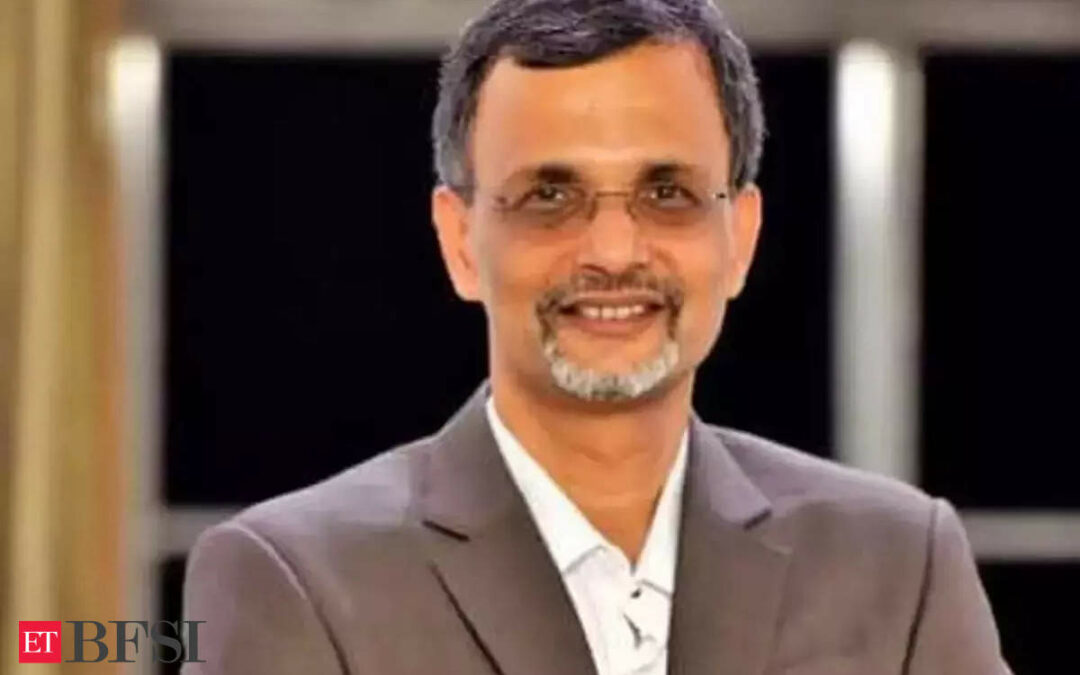The G20 New Delhi Leaders’ Declaration, under the prevailing global circumstances, goes as far as it can in recognising and comprehensively dealing with diverse global challenges, chief economic advisor V Anantha Nageswaran has said. The Indian G20 presidency has significantly added momentum and direction to future work in a number of critical areas, he told Deepshikha Sikarwar in an interview. Edited excerpts:
Does the New Delhi declaration go far in addressing global economic woes?
The declaration recognises the key challenges, starting with cascading crises and lingering uncertainties. The declaration comprehensively recognises the issues in diverse areas such as the pandemic, climate change, digital public infrastructure, the advent of artificial intelligence and its impact on societies, women empowerment, education, food security, sustainable development goals, and regulating cryptos. It recognises the need for strengthening financial capacities at multilateral development banks to help nations deal with global challenges, apart from development challenges. So, in sum, under the prevailing global circumstances, the declaration goes as far as it can in recognising and comprehensively dealing with diverse global challenges.
Is there enough consensus to push ahead with multilateral development bank (MDB) reforms? Does the outcome effectively address the need for reform?
Undoubtedly so. The outcome has at least five paragraphs dealing with various aspects of strengthening and evolving MDBs. The declaration says clearly that we need bigger, better and more effective banks with strengthened financial capacities. So, the boards and the management of these institutions have received a clear signal and a mandate to transform and prepare their institutions to deal with 21st-century challenges. The work of the G20 Independent Expert Group on Strengthening MDBs will provide an important anchor for guiding the work of the G20 on this agenda. The expansion of the MDBs’ mandate to also include global challenges would require enhancing the financing capacities of MDBs. Otherwise, there is a real concern that the resource availability for the core development mandate of MDBs will face a severe crunch.
Implementing the recommendations of a panel on Capital Adequacy Frameworks (CAF), while an important building block, will not suffice for the financing needed. Fresh capital infusion needs to be explored with greater vigour by the MDB management in consultation with shareholders. With the support of the membership, we have been able to find a consensus regarding creating more headroom and mobilising concessional finance to boost the World Bank’s capacity. An early implementation of this can provide a good template for other MDBs. Also, it will enable low-income and middle-income countries to find greater confidence in the MDB evolution agenda.
Is there sufficient progress in delivering relief to debt-stressed countries?
Debt relief is a complex issue. There are many sovereigns and institutions involved. The Indian G20 presidency has consistently striven to bring all parties to the table, achieve consensus on practical and policy steps and move forward. The Global Sovereign Debt Roundtable, which facilitates dialogue between creditors and debtors, is an important case in point.
Climate change and financing issues have seen a step up. Do you think these are achievable goals?
These are not goals that are achieved in quick time. The presidency has put the building blocks in place for climate financing and development financing to happen. Indian presidency has adopted an action-oriented approach to climate finance. We have discussed facilitating access to multilateral climate funds and enhancing their leverage and ability to mobilise private capital. Special focus has been placed on developing, demonstrating, and deploying green
and low-carbon technologies.
Crypto regulation was high on India’s agenda. Do you think it is moving anywhere towards execution?
The global push for policies on crypto assets gained momentum under the Indian G20 presidency. The IMF-FSB Synthesis Paper, including a roadmap, delves into= how the policy and regulatory frameworks developed by the IMF and the FSB (alongside other standard-setting bodies) fit together and interact with each other. This paper is now available in the public domain. Through this work, the G20 has laid the foundation for a globally coordinated comprehensive policy and regulatory framework for crypto assets.
There will be another Finance Track meeting under India’s presidency next month. What are the key issues expected to be taken up?
The second part of the report of the independent expert group will be available by then. We will also focus on furthering the discussion on the IMF-FSB synthesis paper on crypto assets, including the roadmap.










